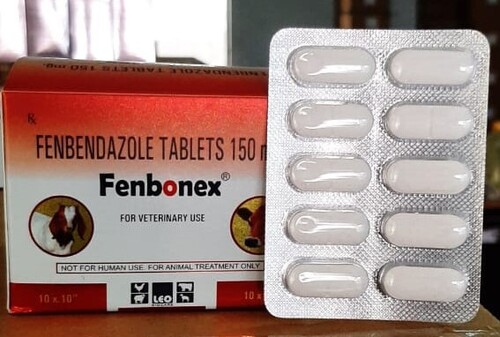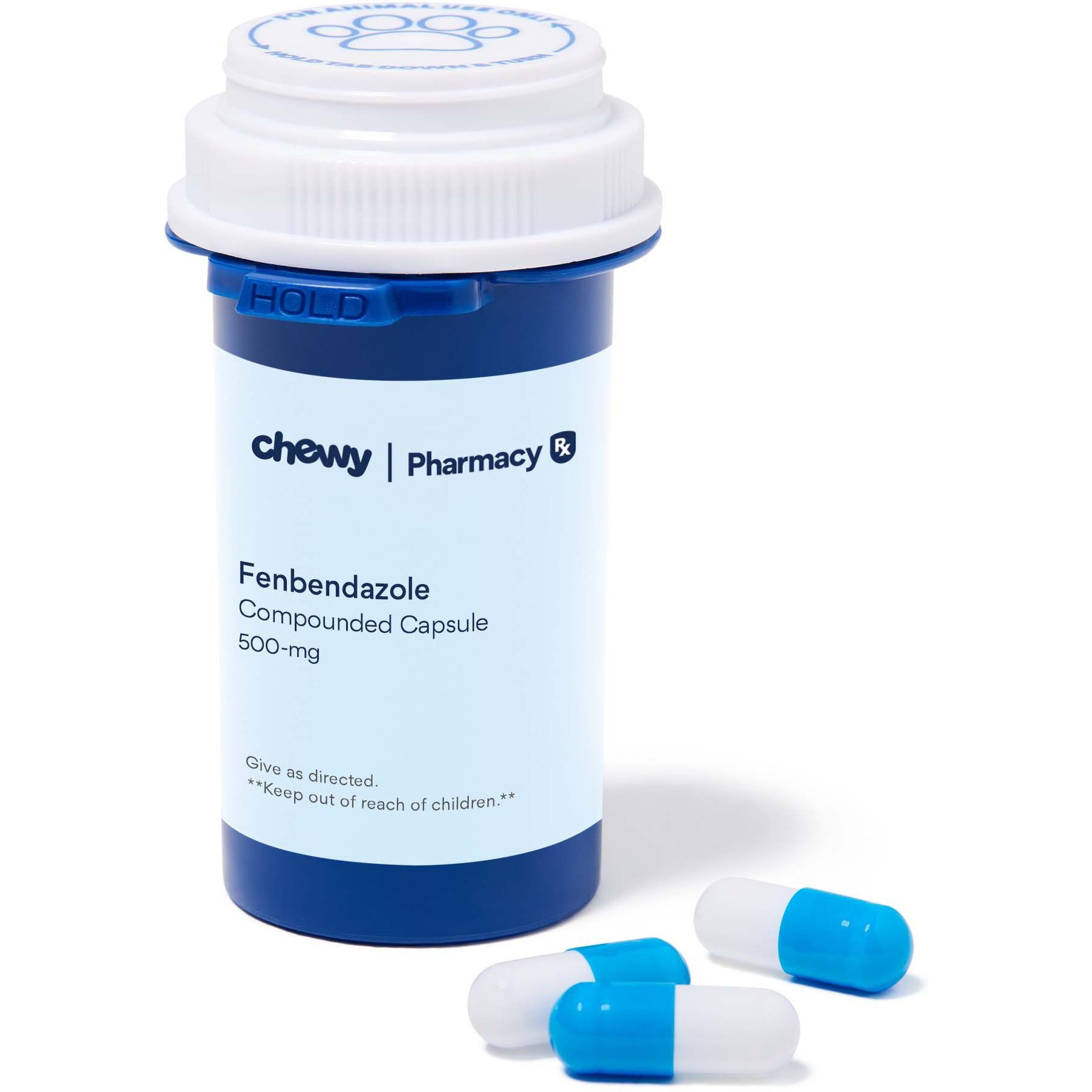fenbendazole capsules: Key Insights for Owners
Wiki Article
Recognizing the Advantages and Uses of Fenbendazole in Vet Medicine
Fenbendazole has established itself as an essential anthelmintic in veterinary medication. Its capacity to target different parasitical infections makes it a useful tool for veterinarians. The medication's mechanism interferes with essential cellular procedures in parasites, bring about efficient treatment results. However, its safety and security account varies in between varieties, demanding careful factor to consider in its usage. Comprehending these dynamics can lose light on fenbendazole's more comprehensive implications in veterinary treatment and continuous study right into its potential beyond standard applicationsDevice of Activity of Fenbendazole

Typical Parasitic Infections Treated With Fenbendazole
A variety of parasitical infections are successfully treated with fenbendazole, making it a versatile option in vet medication. This anthelmintic agent is particularly efficient versus nematodes, including roundworms and hookworms, which typically impact pet dogs and cats. It is likewise made use of for the treatment of cestodes, such as tapeworms, giving a broad range of activity against both kinds of digestive tract bloodsuckers. In addition, fenbendazole is advantageous in managing infections brought on by protozoa, especially Giardia, which can cause gastrointestinal distress in pets. Its efficacy prolongs to treating certain lungworms in pooches and felines, addressing breathing health problems linked to these parasites. In general, fenbendazole's ability to target numerous parasitic varieties makes it a beneficial tool in veterinary practice, making certain the health and health of animals influenced by these common infections.Safety and Efficiency in Various Pet Species
The safety and effectiveness of fenbendazole differ among various animal varieties, underscoring the significance of species-specific considerations in veterinary medication. In dogs, fenbendazole is normally well-tolerated and reliable versus a series of gastrointestinal parasites, consisting of roundworms and hookworms. For felines, however, its use is less common and might need careful application due to potential adverse reactions.In animals, such as livestock and sheep, fenbendazole shows efficiency against numerous endoparasites, adding to improved health and wellness and productivity. The pharmacokinetics and possible side effects can vary substantially in between species, requiring careful analysis by veterinarians.
Equines look at this web-site also react positively to fenbendazole, especially for dealing with strongyles and ascarids, though dose and management routes must be tailored to their one-of-a-kind physiology. As a result, understanding these differences is essential for enhancing therapy outcomes and guaranteeing animal well-being across diverse species.
Administration and Dose Standards
Proper administration and dose standards are important for optimizing the healing results of fenbendazole while decreasing possible adverse effects. The dose usually differs relying on the types being treated, the certain condition, and the formula of fenbendazole made use of. 222 mg. For dogs and cats, a common dose is 50 mg/kg body weight, administered as soon as daily for three consecutive days, but vets may change this based on private health and wellness evaluationsIt is very important to administer fenbendazole with food to improve absorption and minimize gastrointestinal trouble. The medicine is readily available in various types, including granules and paste, permitting flexible management options. Keeping track of the animal's response throughout and after treatment is advisable to confirm effectiveness and security. Furthermore, vet guidance is essential to figure out the proper period of treatment based on the sort of parasitical infection being addressed, guaranteeing optimal outcomes for the animal's health.
Future Viewpoints and Study on Fenbendazole
Study on fenbendazole continues to evolve, concentrating on its prospective applications beyond typical antiparasitic uses. Current research studies have discovered its performance in treating numerous kinds of cancer cells, especially in vet oncology. Initial data suggest that fenbendazole may inhibit the growth of tumor cells and enhance the impacts of other chemotherapeutic agents.Researchers are examining its function in taking care of stomach conditions in pets, highlighting its anti-inflammatory homes. The adaptability of fenbendazole for different species questions regarding its safety and security profiles and excellent application programs in varied populations.
As rate of interest grows, there is a need for extensive scientific trials to develop evidence-based guidelines for these novel applications. Future Resources research might likewise investigate the my latest blog post systems behind fenbendazole's impacts, potentially leading the way for innovative therapeutic approaches in veterinary medicine. The continuous exploration of fenbendazole might significantly boost treatment alternatives for various vet problems.

Regularly Asked Questions
Is Fenbendazole Safe for Pregnant Animals?
The safety of fenbendazole for pregnant pets stays unclear. While some studies suggest very little danger, veterinarians typically suggest caution and usually encourage versus its use while pregnant unless the advantages clearly surpass potential dangers.Can Fenbendazole Be Made Use Of in Animals?
Fenbendazole is generally utilized in animals to treat different parasitical infections. fenbendazole. Its efficiency versus intestinal worms makes it a useful anthelmintic, adding to improved health and performance in animals elevated for food and fiberWhat Are the Negative Effects of Fenbendazole?

The adverse effects of fenbendazole might consist of gastrointestinal disturbances, lethargy, and allergic responses. In uncommon situations, a lot more extreme responses might occur, demanding mindful tracking and consultation with a vet during therapy.
Exactly How Does Fenbendazole Compare to Various Other Dewormers?
Fenbendazole offers broad-spectrum efficiency against different parasites, commonly contrasting favorably to various other dewormers. Its one-of-a-kind device targets different life phases, making it effective, while usually offering a desirable security profile contrasted to choices offered on the marketplace.Can Fenbendazole Be Made Use Of for Treating Cancer Cells in Pet Dogs?
The capacity of fenbendazole in dealing with cancer in animals has actually garnered interest. Initial researches recommend it may prevent cancer cell growth, yet better study is required to verify its efficiency and safety and security in vet oncology.Report this wiki page